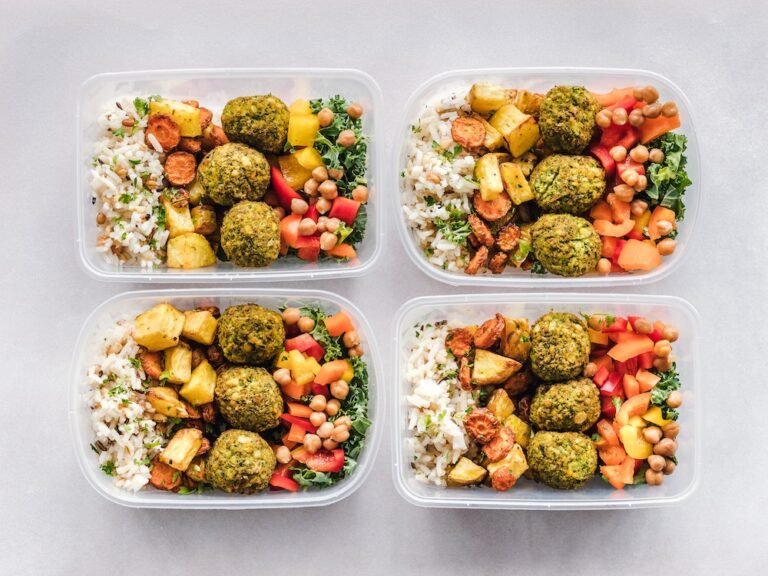If you’re wondering how to maintain your weight after weight loss, the majority of your long-term success relies on your front end of your approach, rather than the back end of your results. If you think you’re going to “hardcore” your way to achieve and maintain weight loss, think again. That plan will be sure to backfire at some point and you’ll find yourself wondering why you can’t control yourself around food and seeing that scale creep up – again! For more information on why hardcore dieting will NEVER work in the long haul, read up on my Top 5 Reasons Why Diets Fail.
Here are my tips for you to support you in your journey so you can not only lose the weight but maintain your weight after losing it.
Maintaining Weight Loss Must #1: Sustainable Eating Style
Any initial change with eating habits (or any habit for that matter) always comes with some level of resistance and challenge, but at some point it has to feel sustainable for you. If you don’t plan do some crazy 30lbs in 30 days approach, you still want to ensure that no matter what changes you’re making, they make sense for you at all times. I always tell my clients, “attainable doesn’t mean sustainable”, meaning, just because you attained a weight loss goal in a certain fashion doesn’t mean it’s sustainable. Anyone can “suck it up” for 30, 60, 90 days and get militant with their eating and see fantastic results, but just because you attain it doesn’t mean you can sustain it. Ask yourself, “Can I see myself doing [this way of eating] for the rest of my life?” and if the answer is “No” then you’ve got some adjustments to do. Hear me: trying to maintain your weight via restrictive dieting will NEVER work. It’s not personal. Your body will just never allow that to happen. Be honest with yourself. For example, if you are incorporating a more Paleo-like approach but miss bread and day dream of bread all the time, meet yourself where you’re at and incorporate bread at a frequency that helps you reach your goals without feeling so deprived. When you don’t feel deprived while you’re in the process of losing weight, you won’t experience up ticks in overeating once you’ve reached your goal.
Be sure there is also a moderate to high level of enjoyment with when, what, and how you are eating. If you hate it, it’s already game over (Again read my Top 5 Reasons for more background here). You cannot be emotionally (or nutritionally) deprived from food. Otherwise, your biology will take over at some point and force you to break the diet because there is a psycho-physiological need to enjoy your food as a human being. When you lose your weight in a manner that is sustainable for YOU, then maintaining your weight is simply a matter of continuing EXACTLY what you’ve been doing for the last X months rather than starting a new “phase” of your dieting. Pretty nice, right? If you can implement how you intend to eat 80-85% of the time, that will give you both short and long-term results. Trying to implement all your good intentions 100% of the time is not sustainable, or realistic. Speaking of..

Maintaining Weight Loss Must #2: Set Realistic Expectations
It’s important to set realistic expectations both during your weight loss and weight maintenance phase. If you don’t set the right expectations during your actual weight loss phase, you don’t stand a chance to properly sustain your results!
When you don’t do anything extreme like Keto, 100% cutting sugar, or other, healthy weight loss tends to be more gradual. You more than likely will NOT see 1-2 lbs per week, every week, like clock work. If your goal is to lose as much weight as quickly as possible, or in the past that’s been your approach, you will NOT be able to sustain that. Newton’s Laws Of Motion state “For every action there is an equal an opposing reaction.” If you lose too much too quickly via dieting (an unsustainable approach), don’t expect to be able to easily maintain your weight!
This is where you need to make the adjustment, in your expectations and sustainable approach (Must #1) on the front end, NOT the back end after you’ve lost weight. Your body is threatened when it loses its life sustaining fat protection so quickly and abruptly and will at some point step in to ensure that discontinues. Your body cares about one thing: Survival…NOT your pant size.
Now, can people still experience more than 1-2 pounds per week weight loss initially? Sure, but the reality is, weight loss isn’t textbook 1-2 lbs per week. If you’ve been dieting for decades, sometimes your metabolism needs more healing than you think. The longer you’ve dieted, the harder it tends to be to lose weight over time because your body is smart and has adapted to your self imposed famines of the past, time and time again, each time getting more aware of the famine ahead and thus not being so giving in getting rid of your unwanted body fat (Survival wiring).
That being said, I would set the expectation at first to focus on feeling good first rather than just hyper focusing on the scale and how quickly you can lose the weight. Welcome gradual weight loss rather than the extreme weight loss that is 100% always followed by a natural inability to maintain it.
Lastly, when you finally feel you’re at a weight you and your body are comfortable with, maintaining your weight isn’t about staying at a static number. Realistically, you’re going to fall within a weight range of 5lbs up to 10 lbs over the years (everyone is different). That’s NORMAL. THIS IS MAINTAINING YOUR WEIGHT. Trying to keep your weight at an EXACT static number forever is not how the body works. It’s important you know this up front so you don’t freak out by the normal ebb and flow of your weight over time and jump on the latest and greatest diet in response because you perceive this normal weight fluctuation as YOU not maintaining your weight loss.

Maintaining Weight Loss Must #3: Mind-Body Inclusive
Achieving and maintaining your weight loss cannot ONLY be about nutrition and WHAT you eat. You also MUST include your mind and body into the weight loss and weight maintenance process as a whole. This goes a bit hand in hand with my sustainable approach advice. Good nutrition and healthy eating isn’t just a numbers or macro game. It’s not a linear approach like we are all taught it to be. Your mind and body play a BIG role in your short and long term success. If you don’t include ways to nurture your mind like you do your body via food, you won’t be emotionally resilient and will be susceptible to emotional eating or even binge eating because your mind is controlling YOU.
Remember all those times where life events happened and caused the abrupt end to your diet and good intentions? This is what happens when you are not mind body inclusive. Your mind has the power to save you or destroy you. Your mind is NOISY. And it can be a total bully and LIAR too. So while you work hard to develop good habits around your eating, it’s also important you learn to develop habits to keep your mindset from down spiraling such as journaling, reflection, meditation, yoga, self-help books, or anything involving healthy, emotional self regulation techniques. If you can’t handle your anger, anxiety, stress, or negative mindset, you’re looking at a very slim chance of keeping the weight off. If you’re not feeling fulfilled or your spiritual cup is always half empty, you will not be able to maintain your results. Put as much energy into your feeding your mindset, emotional, or spiritual needs, and you’ll not only lose and maintain your weight loss, but you’ll become a confident, unstoppable, best version of yourself.
When it comes to your physical body, study up on intuitive and mindful eating because without a better connection with your body and eating experience, eating will feel mechanical and joyless, and you’ll be following nutrition rules forever instead of being able to have your own say on when, what, and how much you eat based on what your body is trying to communicate with you. Healthy eating is so much more pleasurable and sustainable (and can also be VERY spiritual!) when you are tuned in with your hunger and fullness cues and what foods feel good for YOUR body, skills that are absolutely necessary for any aspect of weight management.


